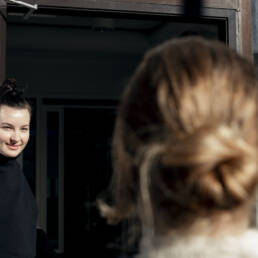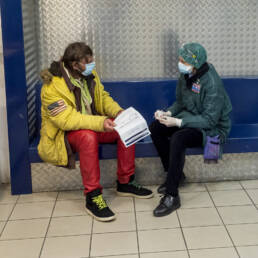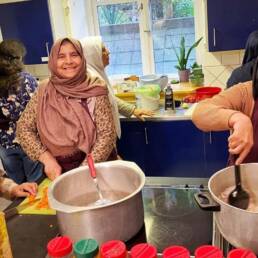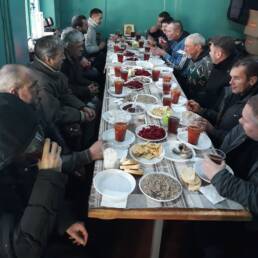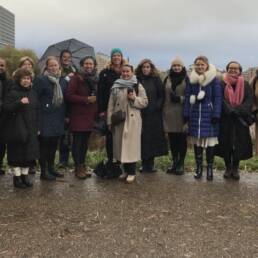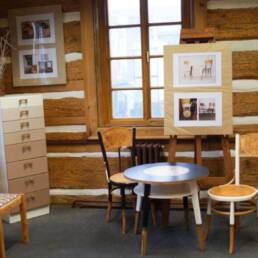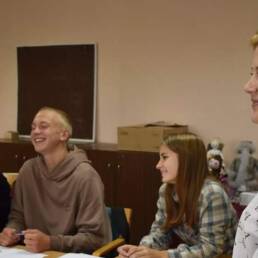Author
Leon Dujardin
Founder and member of the European Social Action Network (ESAN)
The members of the European Social Action Network (ESAN) practice solidarity on a daily basis for and with people in situations of poverty and precariousness.
A few examples of these committed organisations are the Portuguese Instituto De Apoio A Crianca, the German Trägerwerk Soziale Dienste, the Catalan Entitlements of Acccio Social, the Secours Populaire Français, or the Union Francophone des Assistants Sociaux in Belgium. They provide essential support, but their efforts alone are not enough to fulfill Europe’s social needs.
The reason is that nowadays there is no proportional relation between a developed economy and a high-quality social policy in Europe. The Charter of Fundamental Rights of the European Union (EU), based on the indivisible and universal values ??of human dignity, freedom, equality and solidarity, is not fully reflected in our reality. We can see it. Dominated by a liberal ideology, the EU has fallen short of civil society’s expectations. The market, presented by ultra-liberals as a value that can solve all problems, has actually widened the gap between the richest and the poorest.
Already in 2016, at the European Economic and Social Committee (EESC), during a seminar about young refugees and migrants, we found that there was no real inclusive social policy for them. In 2018, again at an EESC seminar, this time dedicated to student poverty in Europe, we made the same observation. The future of the younger generations is being compromised.
United by the ESAN, our members constantly shed light on the situation and advocate European institutions to implement an inclusive social protection. We urge institutions to recognize that we all have the capacity to live together in full respect of human rights. A study we conducted with our members and partners in 17 countries highlighted that in order to acknowledge and respect everyone’s dignity, we need to take time to listen, and engage in dialogue.
Alongside the Social Platform in Brussels and the Conference of INGOs at the Council of Europe, ESAN advocates for the urgent need to implement inclusive European social foundations.
To become even more effective, our INGO, which has participatory status at the Council of Europe, engages with other INGOs such as Caritas Europa, ATD Fourth World, Doctors of the World, Justice and Peace in the coordinating committee for the Turin Process and the European Social Charter.
Currently, we are meeting with the Finnish and French authorities to discuss the protection of social rights through concrete policies and the adhesion of all EU Member States to the revised European Social Charter, which presents an effective promotion of social rights for everyone.
On the occasion of the International Day for the Eradication of Poverty, on 17 October 2018, we noted the great difficulties for the poorest to access decent housing. We will propose a recommendation for the right to have access to decent housing. This priority should be recognised as such because it is instrumental to ensure other human rights.
Our European network, which aims at promoting active citizenship across Europe, hopes that more and more local NGOs will establish relations with national NGOs that will, in their turn, be linked to the Social Platform or to the Conference of INGOs of the Council of Europe, which have participative status. As we are more numerous and united, while respecting our particularities, we will be increasingly influential in the construction of an inclusive and social Europe, a humane one that champions solidarity.
About the author
Léon Dujardin was founder of the European Social Action Network (ESAN-AISBL) in 1991. Today he is member of his office, representative at the Conference of INGOs at the Council of Europe and member of the Bureau of INGO-service. He was National Secretary of the French Secours Populaire from 1973 to 1995 and National Treasurer from 1995 to 2001. He is currently member of its Board of Directors.
He was Co-founder of the National Center for Volunteering in 1974 and Secretary General in a voluntary capacity of 1974 to 1993 of this center; Member of the Board of Directors of the National Inter-Federal Union of Private Health and Social Services (UNIOPSS) from 1988 to 1995; and Member of the French government’s National Council for Policies to Combat Poverty and Social Exclusion from March 1993 to June 1997.



